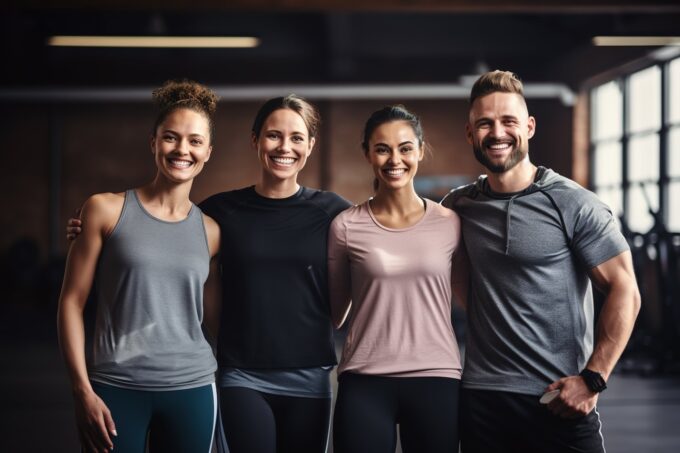Kevin Morgan of Pittsford NY understands the profound impact that social connections in cross-training environments can have on one’s mental well-being. Group workouts not only enhance physical fitness but also offer numerous psychological benefits by fostering a sense of community, providing emotional support, and boosting motivation. In this article, we will explore the importance of social connections in cross-training and how group workouts can significantly improve mental health.
The Importance of Social Connections in Cross-Training
Social connections play a crucial role in our overall mental health. Humans are inherently social creatures, and having a supportive network can lead to a more fulfilling and healthier life. In the context of cross-training, these connections can be particularly beneficial. Kevin Morgan of Pittsford NY emphasizes that group workouts create an environment where individuals can connect with others who share similar fitness goals, challenges, and achievements. This sense of camaraderie can lead to stronger relationships and a more supportive fitness community.
The Mental Health Benefits of Group Workouts
- Enhanced Motivation and Accountability
Working out in a group setting can significantly boost motivation. When individuals exercise with others, they are more likely to stay committed to their fitness routines. The shared goals and collective energy of a group can make workouts more enjoyable and less of a chore. Additionally, group members can hold each other accountable, ensuring that everyone stays on track and remains consistent with their training.
- Reduced Stress and Anxiety
Exercise is known to reduce stress and anxiety levels, and the social aspect of group workouts can further amplify these benefits. Engaging in physical activity with others can provide a distraction from daily stressors while creating a sense of normalcy and routine. The camaraderie and support from group members can also help alleviate feelings of loneliness and isolation, which are common contributors to anxiety.
- Increased Self-Esteem and Confidence
Participating in group workouts can boost self-esteem and confidence. Achieving fitness goals in a group setting provides a sense of accomplishment and reinforces a positive self-image. Encouragement and positive feedback from peers can further enhance self-confidence, making individuals feel more capable and empowered.
- Emotional Support and Connection
Group workouts offer a platform for emotional support and connection. Sharing the highs and lows of fitness journeys with others who understand can be incredibly validating. This emotional support can help individuals cope with personal challenges and foster a strong sense of belonging. Kevin Morgan of Pittsford NY highlights that these connections can even extend beyond the gym, leading to lasting friendships and a supportive network.
- Improved Mental Resilience
Cross-training in a group setting can enhance mental resilience. Facing physical challenges and pushing through tough workouts together can build mental toughness and perseverance. The shared experience of overcoming obstacles can create a strong bond among group members, reinforcing the idea that they can tackle any challenge both inside and outside the gym.
Creating a Socially Supportive Cross-Training Environment
- Join a Cross-Training Group or Class
One of the easiest ways to experience the benefits of group workouts is to join a cross-training group or class. These structured environments provide opportunities to meet new people and engage in a variety of exercises. Many gyms and fitness centers offer group classes tailored to different fitness levels and interests.
- Participate in Fitness Challenges and Events
Fitness challenges and events, such as charity runs, obstacle courses, or team competitions, can create a sense of community and purpose. Participating in these events with a group can enhance motivation and provide a shared goal to work towards. Kevin Morgan of Pittsford NY encourages individuals to seek out local events and challenges that align with their interests.
- Leverage Technology for Virtual Workouts
In today’s digital age, virtual group workouts have become increasingly popular. Online platforms and fitness apps offer live and recorded classes that individuals can join from the comfort of their homes. Virtual workouts can still provide a sense of community and connection, especially when participants interact with each other through chat features or social media groups.
- Create a Workout Buddy System
For those who prefer smaller groups, a workout buddy system can be highly effective. Pairing up with a friend or family member for regular workouts can provide accountability, support, and companionship. Setting shared fitness goals and celebrating achievements together can make the fitness journey more enjoyable and rewarding.
- Engage in Social Activities Outside of Workouts
Building social connections through cross-training doesn’t have to be limited to workout sessions. Engaging in social activities outside of the gym, such as group dinners, hikes, or recreational sports, can strengthen relationships and create a well-rounded support network.
The mental health benefits of social connections in cross-training environments are profound. Group workouts not only enhance physical fitness but also provide emotional support, reduce stress, and boost self-esteem. Kevin Morgan of Pittsford NY advocates for incorporating social elements into cross-training routines to foster a sense of community and improve overall mental well-being. Whether through group classes, fitness challenges, or virtual workouts, the key is to stay connected and support each other on the journey to better health.
